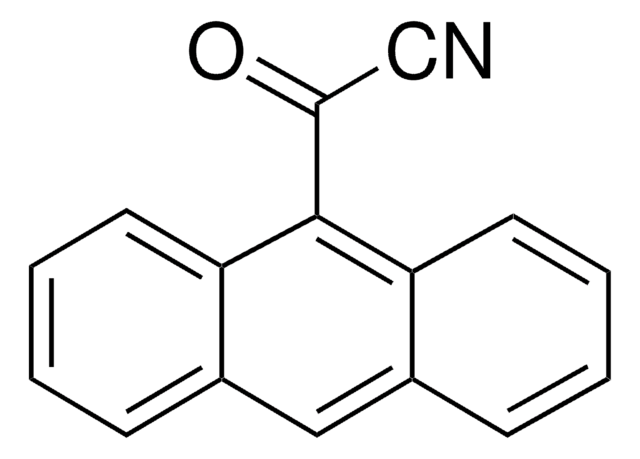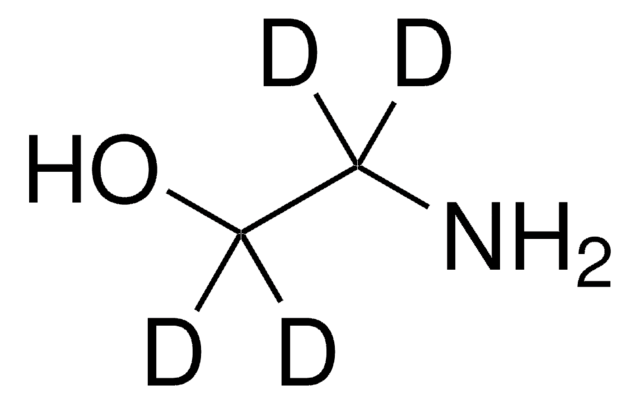15014
Ethanolamine
≥99%
Synonyme(s) :
2-Aminoéthanol, Alcool 2-aminoéthylique
About This Item
Produits recommandés
Densité de vapeur
2.1 (vs air)
Niveau de qualité
Pression de vapeur
0.2 mmHg ( 20 °C)
Pureté
≥99%
Forme
liquid
Température d'inflammation spontanée
1436 °F
Limite d'explosivité
17 %
Impuretés
≤0.5% water (Karl Fischer)
Résidus de calcination
≤0.05% (as SO4)
Indice de réfraction
n20/D 1.454 (lit.)
Point d'ébullition
170 °C (lit.)
69-70 °C/10 mmHg
Pf
10-11 °C (lit.)
Densité
1.012 g/mL at 25 °C (lit.)
Traces de cations
Fe: ≤10 mg/kg
Groupe fonctionnel
amine
hydroxyl
Chaîne SMILES
NCCO
InChI
1S/C2H7NO/c3-1-2-4/h4H,1-3H2
Clé InChI
HZAXFHJVJLSVMW-UHFFFAOYSA-N
Vous recherchez des produits similaires ? Visite Guide de comparaison des produits
Application
- Catalytic performance and acidic analysis of chloroaluminate ionic liquid: Explores the effects of ethanolamine on the catalytic properties of ionic liquids in oil synthesis (Hu et al., 2024).
Autres remarques
Mention d'avertissement
Danger
Mentions de danger
Classification des risques
Acute Tox. 4 Dermal - Acute Tox. 4 Inhalation - Acute Tox. 4 Oral - Aquatic Chronic 3 - Eye Dam. 1 - Skin Corr. 1B - STOT SE 3
Organes cibles
Respiratory system
Code de la classe de stockage
8A - Combustible corrosive hazardous materials
Classe de danger pour l'eau (WGK)
WGK 2
Point d'éclair (°F)
195.8 °F - Pensky-Martens closed cup
Point d'éclair (°C)
91 °C - Pensky-Martens closed cup
Équipement de protection individuelle
Faceshields, Gloves, Goggles, type ABEK (EN14387) respirator filter
Faites votre choix parmi les versions les plus récentes :
Déjà en possession de ce produit ?
Retrouvez la documentation relative aux produits que vous avez récemment achetés dans la Bibliothèque de documents.
Les clients ont également consulté
Notre équipe de scientifiques dispose d'une expérience dans tous les secteurs de la recherche, notamment en sciences de la vie, science des matériaux, synthèse chimique, chromatographie, analyse et dans de nombreux autres domaines..
Contacter notre Service technique








